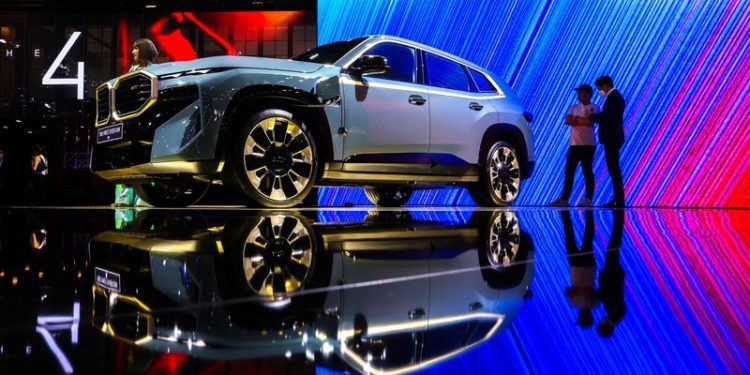By Andrey Sychev and Miranda Murray
BERLIN (Reuters) -Sluggish demand and stiff competition in China hit third quarter sales at BMW (ETR:BMWG) and Mercedes, the German luxury automakers said on Thursday.
The German car sector is facing multiple challenges, ranging from high production costs and managing the shift to electric vehicles to falling demand and rising competition from China.
The troubles have been illustrated most recently by a cost-cutting drive at Europe’s biggest automaker, Volkswagen (ETR:VOWG_p), which is considering plant closures in Germany for the first time.
For the July-September quarter, BMW’s sales fell 13%, while Mercedes reported a 3% drop.
Demand in China, the world’s biggest auto market, is suffering from a flagging economy, while foreign carmakers face stiff competition from local manufacturers offering cheaper models, especially EVs.
BMW’s sales in China slumped by a third while Mercedes’ fell by 13%.
Mercedes also noted a subdued global battery electric vehicle (BEV) market, reporting a 31% BEV sales drop. For BMW, BEV sales rose 10% in the quarter.
The European Union has recently imposed hefty tariffs on Chinese-made EVs, saying they benefit from unfair state subsidies. Beijing denies this and has threatened retaliation, while German automakers, which make about a third of their profits in China, have voiced concern and called for more talks.
European consumers are reluctant to buy more expensive EVs, in part because of patchy charging infrastructure.
Shares in BMW and Mercedes were flat after the sales data.
The companies cut their annual forecasts in September citing a sluggish Chinese market, while BMW also mentioned problems with a braking system supplied by Continental.
So far this year, BMW and Mercedes shares are down 23% and 9% respectively, while the pan-European automotive index is down 13%.





